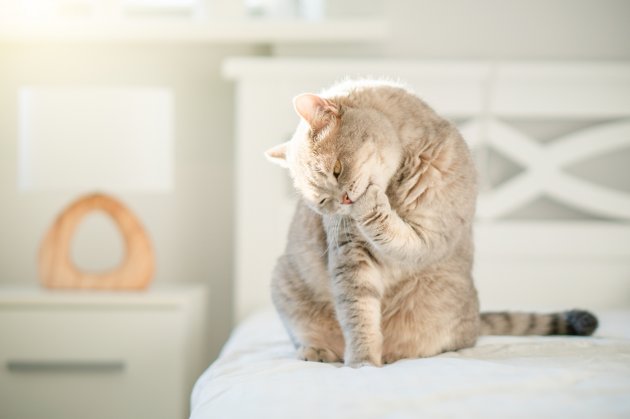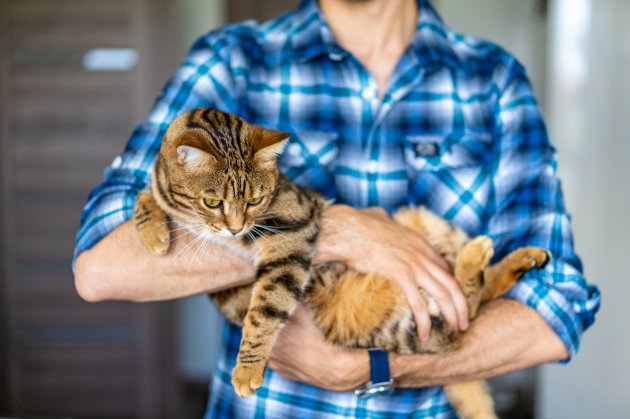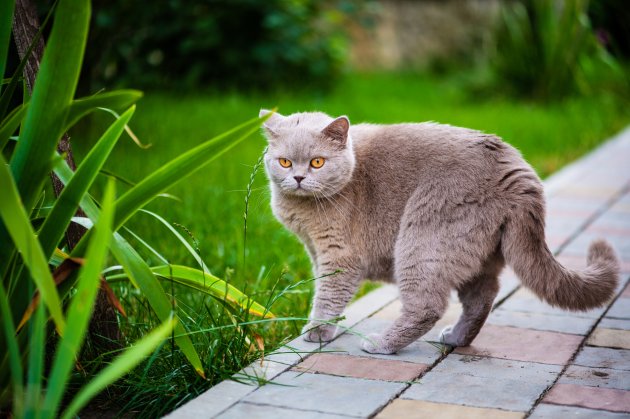When we embark on the challenge of becoming the best pet parent possible, we are bound to make some mistakes. But as time goes on, we learn exactly what we need to do to keep our furry pals happy and healthy.
To help you cut this learning process down, we’ve pinpointed the 17 mistakes new cat parents make - some, you may still be doing!

1. Getting a Cat That Isn't the Right Fit
If you are thinking about getting a cat, be sure to research the breed or visit an animal rescue to find the best fit for you and your family. Impulsively adopting a cat is a mistake. Be sure to take the time you need to find the right breed, taking into consideration things like coat length, adult or a kitten, and how much time you have to spend with your new family member. All cats and kittens are cute, so it’s better to choose your companion based on its personality over its outward appearance.
2. Thinking Cats Are "Low Maintenance"
There are no such things as “low maintenance” pets. All animals need your time and attention to forge a proper and lasting relationship, cats are no exception. True, your feline friend will not need to be walked every day, but it will still need certain mental and physical stimulation that can only be provided by you, as well as grooming sessions, being fed, and litter box maintenance.
3. Not Getting the Cat Spayed or Neutered
Unaltered cats are always on a mission to mate. This means they will constantly try to get outdoors, which puts them at risk for injury and disease. Unneutered males will also urine-mark in your home, creating a horrific mess and unbearable odor. Males will also fight over females, which, again, puts them at risk for injury. Female cats become very vocal and difficult to live with when they are “in season.” Plus, not spaying or neutering your felines put both the sexes at a higher risk for certain cancers.
4. Allowing the Feline to Roam Outdoors
Free-roaming cats are at a higher risk of injury, disease, and parasites. If you live in a rural setting, roaming cats can fall victim to other predatory animals such as wolves and coyotes, or large birds of prey. Cats running across busy city streets can be hit by fast-moving vehicles. Lastly, some neighbors may not appreciate your cat digging in their prized rose garden or hunting songbirds at their outdoor feeders.
5. No Routine Vet Visits
Some pet parents believe that indoor cats do not need to go to the veterinarian for yearly checkups. When you take your pet to the vet, he or she will check your cat’s overall health. They examine your feline’s teeth, listen to its heart, and look for any abnormalities. They will also answer any questions or concerns you may have. Remember, catching a health issue, before it fully manifests itself, could be the difference between a cure and a death sentence.

6. Not Putting Identification on the Cat
If you are a pet parent that allows your cat outside, you will need to put identification on it. Tags are okay, but microchipping is best. Tags can fall off and get lost, while microchipping is a permanent chip that is quickly and easily inserted under the animal’s skin. This cannot be lost or stolen and contains all your pet’s information.
7. Not Training the Cat
If you’ve ever struggled with the feline species to get it to do anything it doesn’t want to do, then you know the battle. Training a kitten from the beginning to go into a kennel, ride in the car, have its nails clipped, or looking into its mouth are all things you will be happy you practiced when the time comes to go to the vet, or when your cat needs to be groomed. Practice these habits early, to avoid the battle.
8. Poor Oral Hygiene
Our cat’s teeth cannot be neglected any more than our canine companions can. Oral disease can cause pain in our cats which can lead to a poor diet. A mouth full of bad teeth can also be a vehicle for other health issues such as heart problems. If you are not able to brush your cat’s teeth, be sure to give them crunchy food and treats or toys designed for cleaning teeth.
9. Poor Litter Box Management
Most cats are very fastidious and are disgusted by having to use a dirty litter box. In fact, some cats will find other areas to relieve themselves if their litter box is dirty. Avoid this issue by making sure you scoop the box at least once a day and give it a throughout cleaning at least once-a-month. If you have more than one cat, you may have to get another litter box. Further considerations are to use the right size of the box, the proper location, and the right type of litter that suits your feline’s preferences.
10. Pro Declawing
Declawing a cat is a painful and unnecessary surgery that requires the amputation of the first knuckle of the cat’s toes. It can lead to physical problems, biting, and poor habits like not using the litter box. If you don’t want a pet scratching the furniture, then the feline species may not be your best pet-fit.

11. Not Providing the Right Stimuli
Bored cats tend to become overweight, lazy, and sometimes, even destructive. Provide your feline friend with scratch posts, toys, human attention, or maybe even another furry feline friend to pal around with. These “small” things can all help your pet live a longer, happier life.
12. Ignoring Odd Behavior
Even if your cat is a bit of an “odd-ball” don’t ignore any strange or new behaviors that are out of the ordinary. These can be the first signs of distress or an underlying illness.
13. Mismanaging "Bad" Behavior
Most cats do not respond well to harsh punishment. If your pet is doing something it shouldn’t be, redirect its attention or give it “timeout” in a different room or area of your home. Hitting, yelling, or other forms of punishment will only serve to scare your pet, which can lead to fear and distrust.
14. Not Preparing Your Cat for Changes
The cat species are notorious creatures of habit and with this quirk comes the lack of “going with the flow.” Change, for some felines, can mean devastation that can lead to fear, which can lead to dietary upset, or not eating at all. Prepare your cat for changes by making any transitions as easy as possible. For example, if you are moving, be sure to give your pet a safe spot (in both homes) to be away from all the hustle and bustle.
15. No Parasite Control
Just like dogs, cats can suffer from both internal and external parasites. Have your felines feces tested and then treat if necessary, and always be sure to use flea and tick preventatives if your cat is allowed outdoors.
16. Inferior Food
What we drop into our feline’s dish matters. Inferior foods can lead to poor quality of life, coat issues, bad teeth, and a whole other host of issues. Always feed your cat a high protein, low filler diet to keep it active and healthy.
17. Over Handling
Even though it is very difficult not to do, hugging, squeezing, and generally over-handling your cat is a mistake. Cats prefer to come to people on their terms and are much happier when we allow them to do so. You can encourage your pet to pay attention to you with interactive toys, catnip, or fun grooming sessions.
Conclusion
Whether you’re a newbie cat parent or one that has been around the feline species for years, watching out for mistakes when dealing with our pets is paramount. Let’s make our cats happy by being aware of these 17 points our feline friends may take issue with.
Further reading:
- ScienceDaily. Cats are securely bonded to their people, too
- MedicalNewsToday. Only 'cat whisperers' can read felines' facial expressions